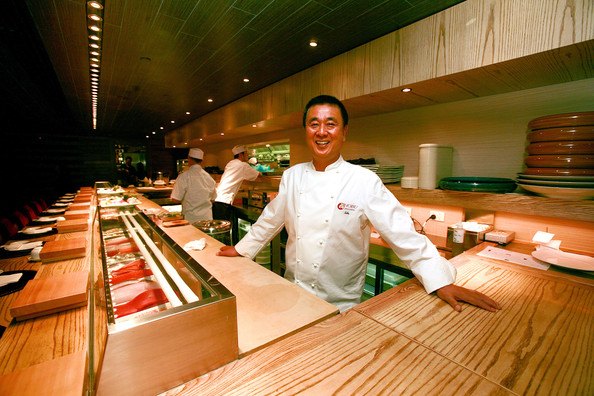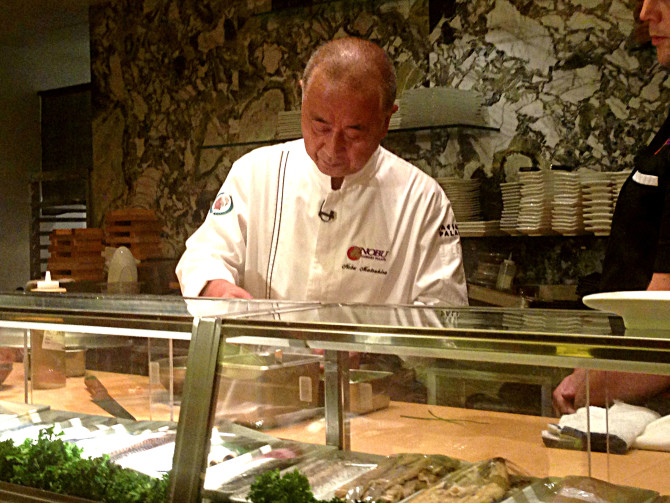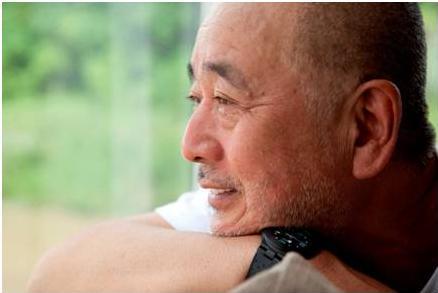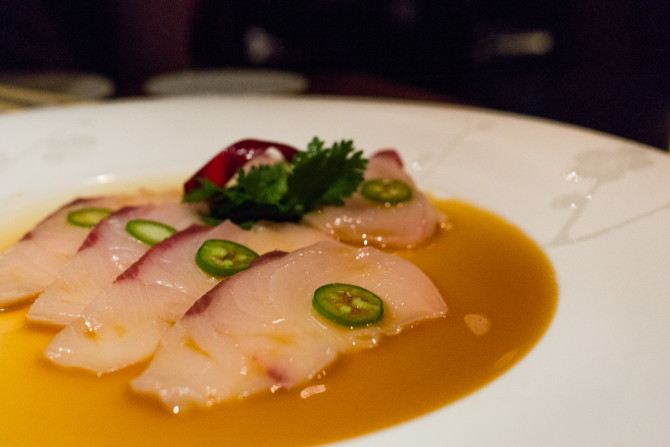If you only know the number of restaurants Nobuyuki Matsuhisa, best known as “Nobu”, has around the world, you may think it’s hard to relate to him. Nobu is not on Food Network or shows like Master Chef, so why should we care about him? That’s because this 67 year-old, young-at-heart chef and restaurant owner has some inspirational stories and a humble attitude that we all can learn from.
1. Nobu is a hardworking go-getter and has lots of patience.

Photo Courtesy of destinationluxury.com
His childhood wasn’t easy. In his recent Japanese memoir, Nobu shared a story about his father’s death due to a car accident when he was only seven. Nobu himself also got into a terrible vehicle accident because he was driving with friends without a license. After the incident, he was expelled from high school. But these adversities didn’t stop him from his childhood dream to become a sushi chef.
Instead, he pursued his passion and started working at a sushi restaurant at the age of 17. He worked as a bus boy for three years, who did everything from washing dishes to cleaning fishes, before he was allowed to cook at the restaurant. It’s custom in Japan that aspiring sushi chefs need to go through long training periods, and you won’t be able to serve your sushi to customers for years. Nobu’s current success is based on his patience and his continuous hard work.
2. Nobu cooks from the bottom of his heart, and it’s his way to show how he cares.

Photo Courtesy of blog.ceasers.com
His Japanese hospitality hasn’t changed since he started his culinary career, and his love for food is rooted in his heritage. He was an excited young chef who always wanted to make his customers happy, and he listened to their requests and opinions. His mother and grandmother were huge influences on his cooking knowledge, as they taught him traditional Japanese cuisine. They also taught Nobu that food was not just cooking, but a way to show care.
3. Nobu knows how to work on despite despair.

Photo Courtesy of aquaexpeditions.com
This Japanese chef has seen the worst. His first restaurant in America was burnt down after 50 days of its opening. Nobu recalls it as “the worst day of [his] life,” and he still remembers the day because it’s a reminder of how far he’s become.
I first met Chef Nobu at Nobu Tokyo when I was 18-years-old, right after I graduated from high school and was about to start college in the States. He sat down with me, and told me not to forget the reason I wanted to go abroad, and to always be thankful to my parents for the opportunity.
When I now think about our conversation from back then, I think he knew that it would be very easy for a teenager to get carried away and forget how much of a blessing it is for one to have an opportunity to continue education. His words sinked in my heart, and I still stick to his teaching.
4. Nobu isn’t afraid of changes and challenges.

Photo Courtesy of thatfoodcray.com
Nobu moved to Lima, Peru at the age of 24. Back then, things were much different. There was a lack of necessary ingredients, except for fresh fish, to cook traditional Japanese dishes in South America. So he used his creativity and incorporated a Peruvian palate into the Japanese one. The invention of Peruvian and Japanese fusion cuisine later appealed customers from all over the world, and landed him in his current fame. Although he encountered a number of failures and misfortunes along the way, his passion and determination always pushed him to try again, and start from scratch. He eventually opened his restaurant, Matsuhisa, in Los Angeles where he met actor Robert De Niro, co-founder of Nobu.
Although Nobu is often seen as part of lavish way of life due to the popularity among celebrities, Nobu never intended to make his restaurants only for the high class. Kayne West might sing about Nobu in one of his rap lyrics, or Blair Waldorf might demand Nobu for her date night on Gossip Girl, but it’s crucial to know that Nobu’s restaurant isn’t just a garnishment of an affluent lifestyle. For Chef Nobu, it’s more important that you enjoy the art of Japanese-Peruvian fare, and feel happy when you walk out of the restaurant.




